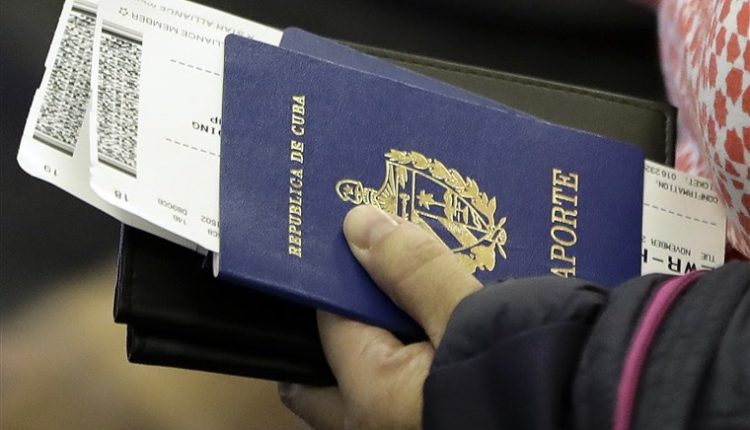
Reducing the cost of the Cuban passport
In the midst of a severe economic crisis, Cuba still has important pending decisions when it comes to naturalization and its approach to emigration. For a country with a very high percentage of emigrants, and where opting for residency in other countries is one of the main ways its citizens take to improve their quality of life, the relationship of the Cuban authorities with the diaspora is not necessarily welcoming, and there are still certain measures not taken that have been postponed for a long time. At least that is how a considerable number of the Island’s émigrés think.
It is relevant that Cuban President Miguel Díaz-Canel, during his current tour of European countries, on Oct. 21 referred to the government’s efforts on procedures, prices and passport extensions in a meeting with Cubans residing in Ireland. And prior to that the director of Consular Affairs and of Cuban Residents Abroad (DACCRE) in the Ministry of Foreign Affairs, Ernesto Soberón, stated that the government intends to increase ties with its emigration, but did not offer any other details during the IV Meeting of Cuban Residents in Latin America and the Caribbean held in Mexico.
Cost reduction of the Cuban passport, as well as simplification of procedures to obtain and renew it outside the country, has been and continues to be a deep desire of thousands of emigrants. The Cuban passport is one of the most expensive in the world, and its validity depends on constant extensions and payments that make it difficult for emigrants to interact with their relatives and friends residing on the Island.
There are numerous proposals to eliminate the cumbersome proceedings and the required extensions every two years. These include making it valid for at least 10 years instead of the six currently established. These proposals could increase the frequency and quality of trips to Cuba by its citizens residing abroad, as well as the improvement of filial relations on both sides, while increasing money spent on the Island.
Investing in one’s country of origin has been another desire that has seen too many postponements. Even though the Law of Foreign Investment allows Cubans residing abroad to invest in Cuba, in practice there is no known case that supports that possibility. Investment has therefore been channeled through remittances and informal practices in the areas of the second economy.
At the moment, in the words of the DACCRE official, work is being carried out in the legal framework that allows for transparent investment in the Island, although essentially local in scope.
Soberón also mentioned the need to move forward in the elimination of migratory categories so that “there are only Cubans — those who reside in their native country or in another nation.” This would represent a long-awaited step forward.

